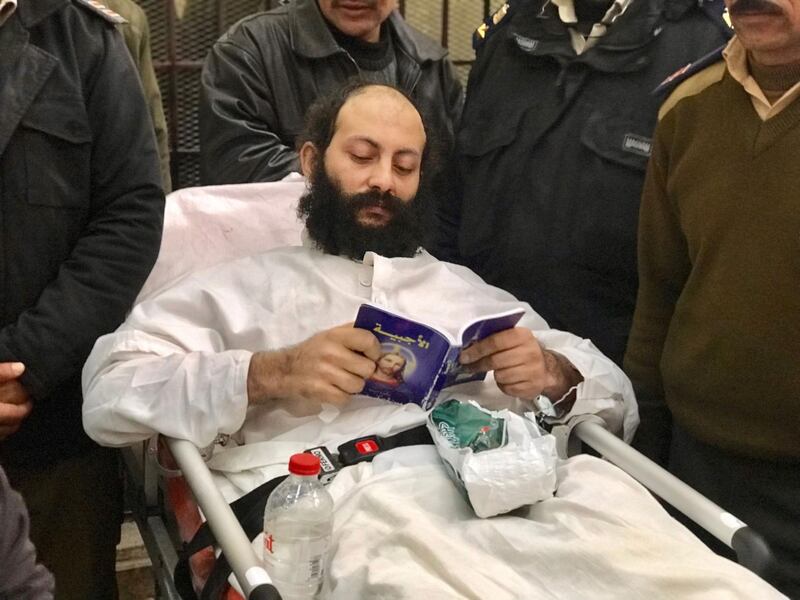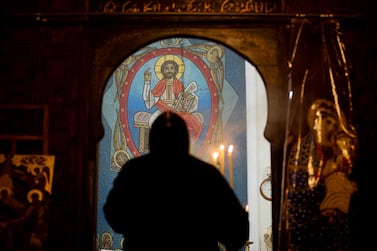An Egyptian court on Saturday recommended the death sentence for two Christian monks it found guilty of killing the abbot of a desert monastery, a crime that rocked Egypt’s ancient Coptic Orthodox Church and invited scrutiny of its monastic traditions.
Gamal Tawson, the presiding judge of a criminal court in the Nile Delta city of Damanhoor, ruled to refer the two monks to the Grand Mufti, the country’s top Muslim authority, for his opinion. It is a routine practice that applies to the country’s Muslim majority as well as its Christian minority.
The mufti’s response is non-binding and rarely goes against capital punishment rulings by the courts.
The court will reconvene on April 24 to pass sentence, which the two monks can appeal. The two monks – Isaiah and Faltaous – were referred to trial in late August. Prosecutors have maintained that Isaiah, who was later defrocked, killed the abbot, Bishop Epiphanius, in the middle of the night as he was walking to prayers. Faltaous, they said, was complicit in the killing, which took place in the 4th-century monastery of St Macarious north-west of Cairo
A third monk, one of several banished from the monastery following the killing, was found dead in his cell at a monastery south of Cairo. An autopsy performed in September showed clear signs of poisoning. The monk had been expected to testify in the murder trial.
The case of the abbot’s killing has laid bare a side of the church that few in Egypt knew existed, including the growing power and independence of monks in remote monasteries who appear to be at odds with Pope Tawadros II, the spiritual leader of Egypt’s Orthodox Coptic Christians.
Following the killing, the church took action to discipline life in monasteries.
It suspended admission of novices to monasteries for a year, threatened to expel monks found to have established “illegal” monasteries and gave monks a month to shut down social media accounts. No media interviews without prior permission, it decreed.
The church also appealed to lay Christians not to enter into any financial deals with monks, suggesting that corruption exists in some monasteries, and urged the monks to strictly observe the church’s ancient rules of asceticism or face expulsion.
Orthodox monasteries can be found across Egypt, but those located in remote desert areas, such as St Macarious, have traditionally enjoyed a special status because they symbolised the revival of the ascetic traditions of early monasticism. They witnessed a renaissance over the past century after hundreds of years of neglect that saw many of them abandoned, and are now at the center of the identity of Egypt’s Coptic Orthodox Church.
Orthodox Christians constitute the large majority of Egypt’s Christians, who comprise about 10 per cent of the 100 million Muslim-majority population.







